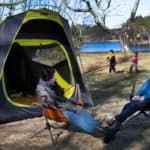Camping with the family and left the kids’ sleeping bags at home?
It’s no picnic preparing for a group adventure, but there’s a remedy to this packing puzzle – a comprehensive UK-centric family camping checklist with all the essentials.
Ready to replace packing anxiety with more quality time in the great outdoors? Read on for our interactive family checklist or click the download button below to print a PDF version of the checklist.
Shelter & Bedding
Essentials
Make sure to check your sleeping bag has the right temperature rating for the weather you will be camping in.
Non-Essentials
Cooking & Eating
Essentials
Pack more food and water than you’ll think you need.
Non-Essentials
Basic Clothes
Essentials
Non-Essentials
Spare clothes are must-haves just in case the temperature drops or your clothes get wet.
Cold Weather / Summer Clothing
These are a mixture of essentials and non-essentials depending on what conditions you will be camping in.
Personal and Hygiene
Essentials
Non-Essentials
Extras for a Family With a Baby or Toddler
Essential family items
Non-essential
Leisure Items
Everything below is not essential for packing but will help keep you and the kids entertained.
Navigation, Lighting and Tools
Essentials
Non-Essentials
Packing List For more Advanced Campers
Some of you might be planning a more intense wild camping adventure. Here is a list of a few extra bits of gear that you might want to consider.
Let’s Make the Best Family Camping Checklist!
Hi, I need your help! There are loads of families out there just like yours that want to go camping but are put off because of their anxiety of not packing the right gear (or forgetting the diapers!).
If you can think of anything that should be in the checklist above, I would be super grateful if you could post it in the comments section at the bottom of this page. Thanks!
Alternative Ways to Download The Camping Checklist
You can view our downloadable family camping list pdf here.
Or, alternatively, I have included these as images below. You can save the images by clicking on the image, waiting for it to pop up, right clicking the image and then selecting “save as”.
Happy Camping 😊
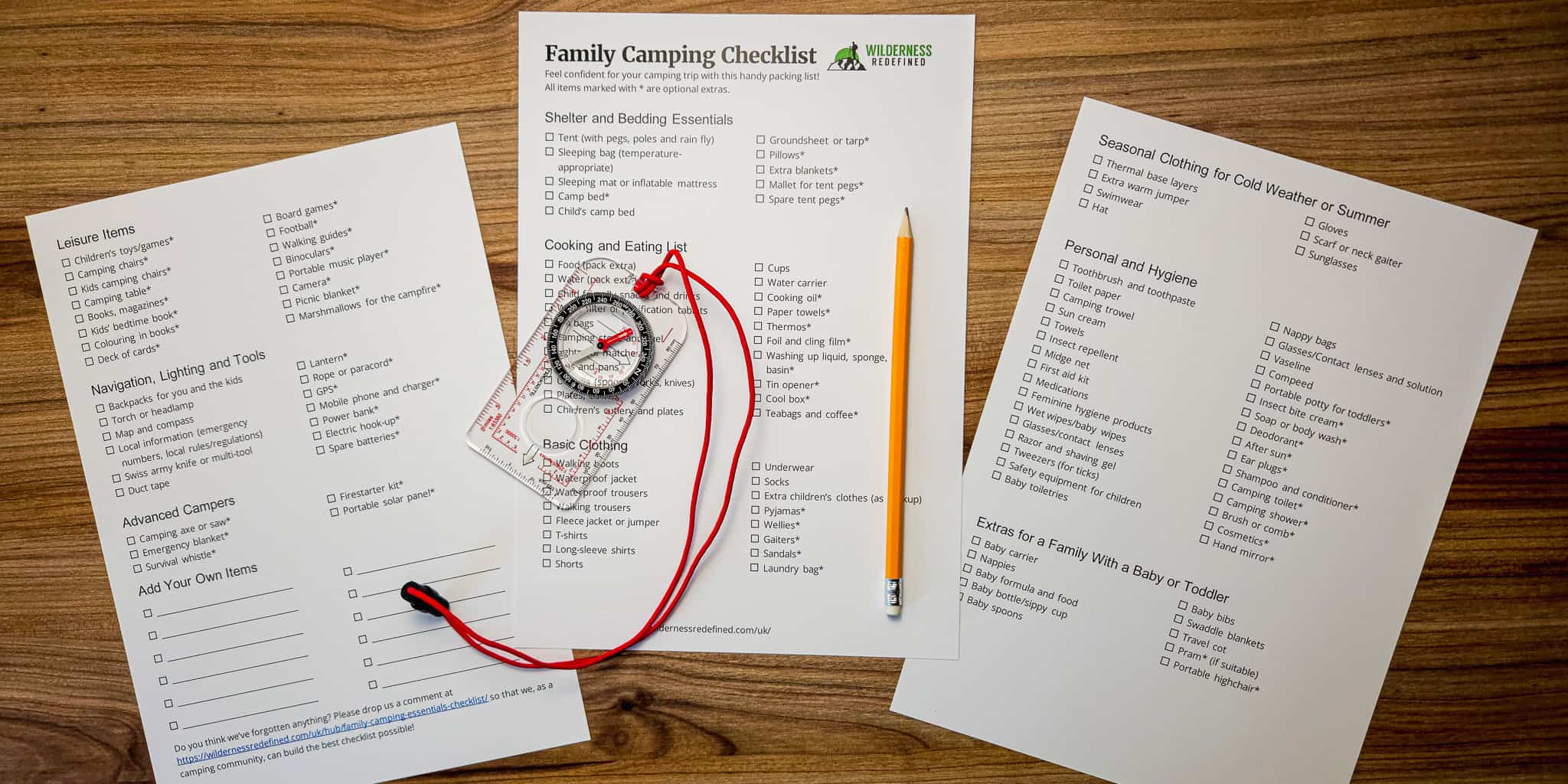
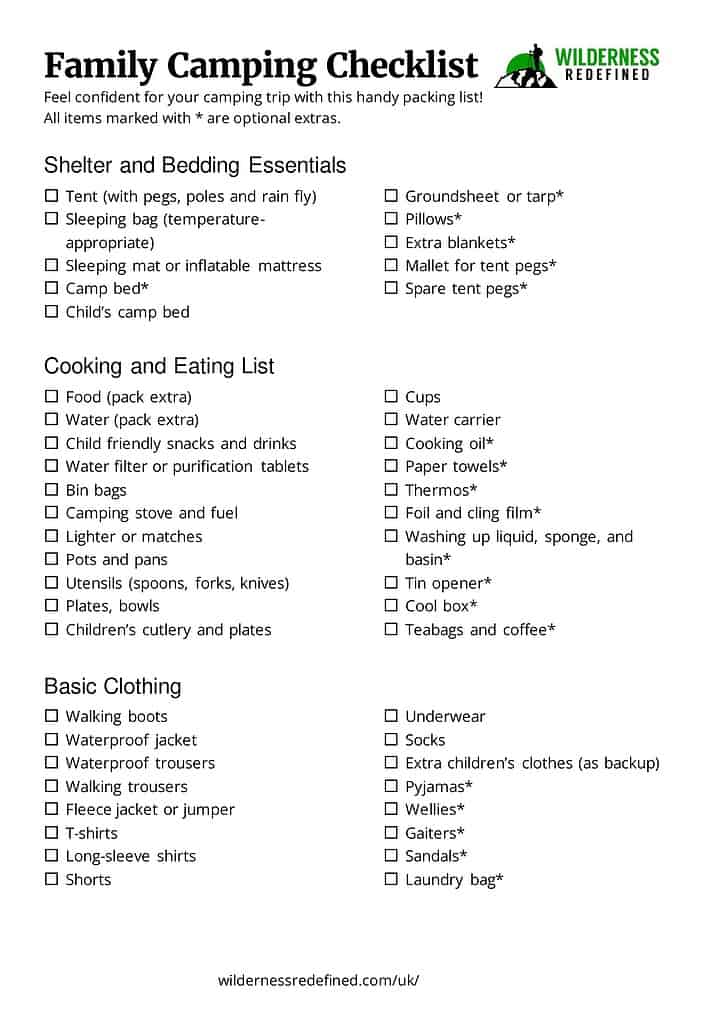
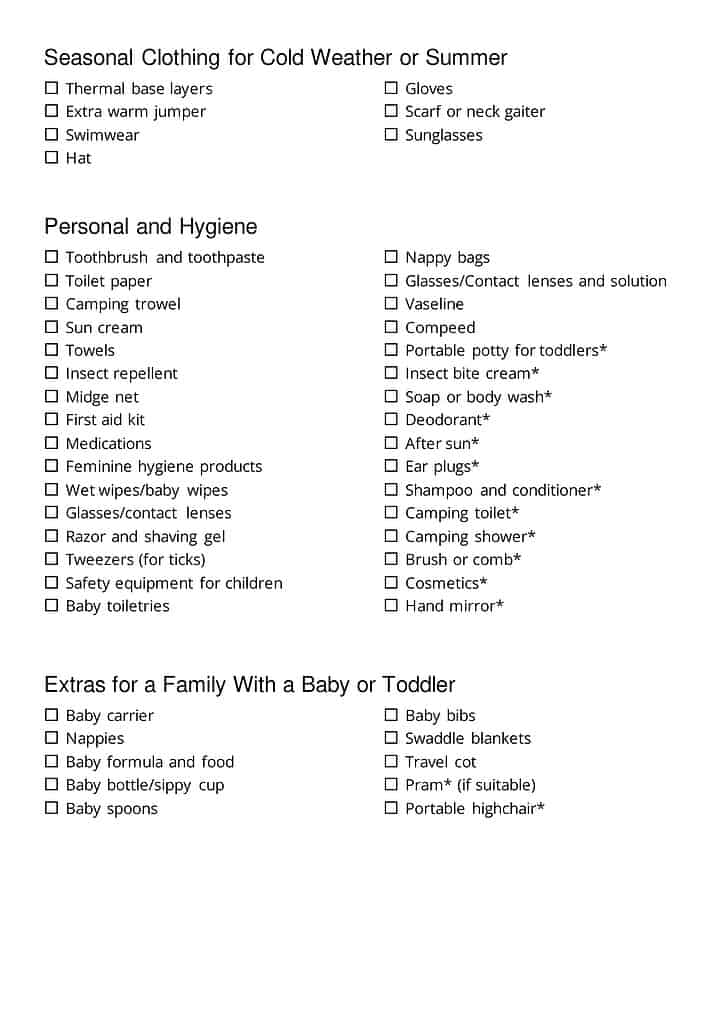
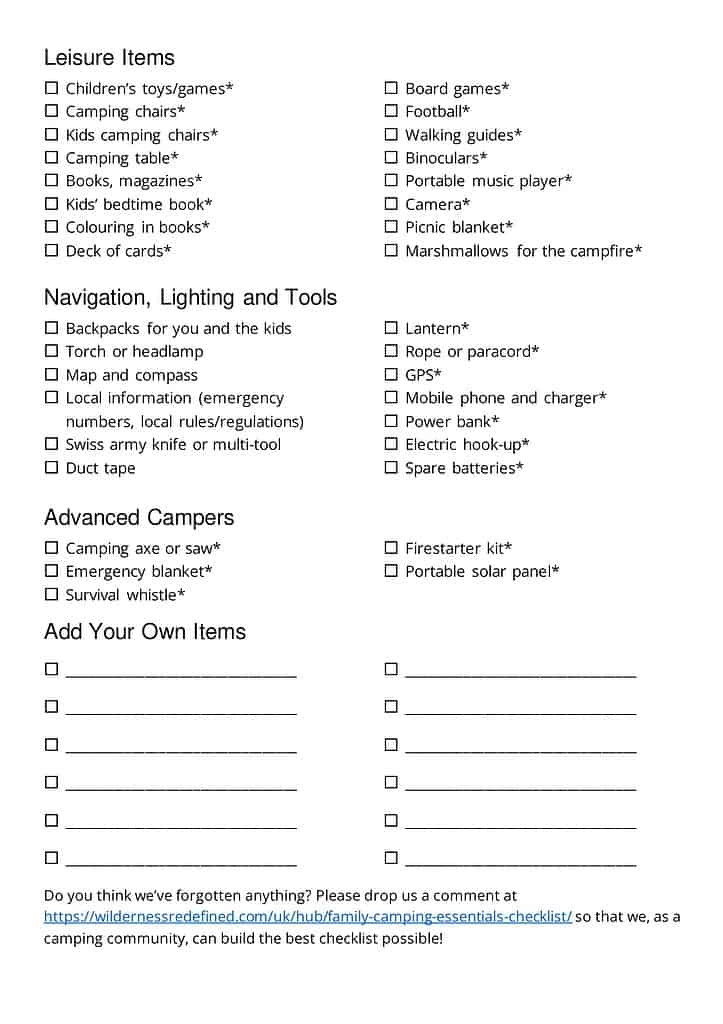
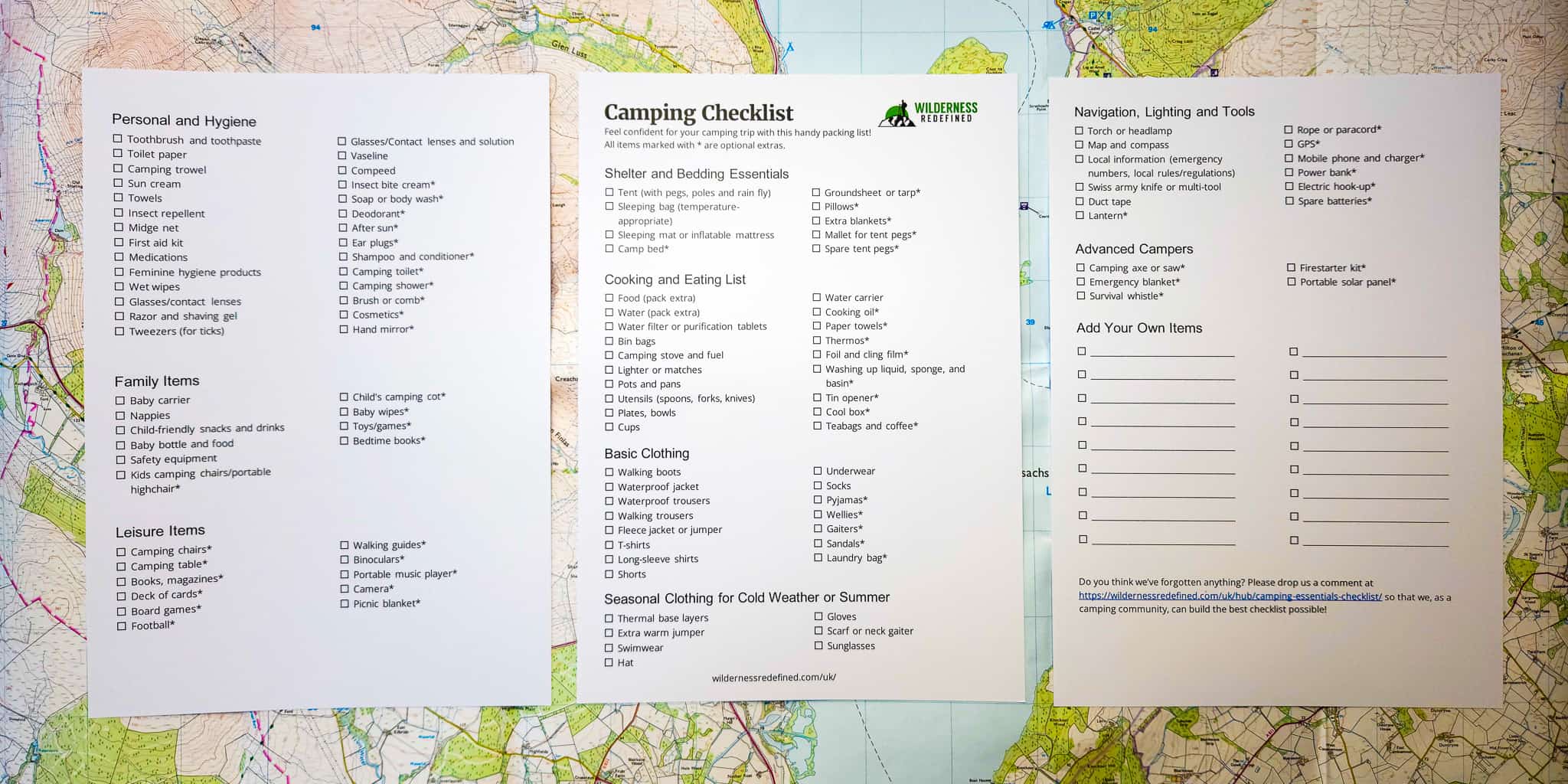
![Camping Essentials For Women [Girls' Checklist + PDF]](https://wildernessredefined.com/wp-content/uploads/2022/09/womens-camping-essentials-checklist-pdf-150x150.jpg)
